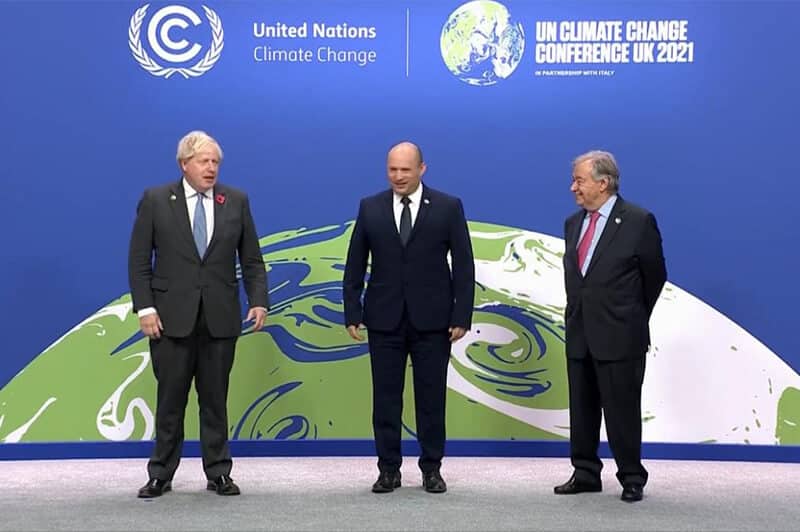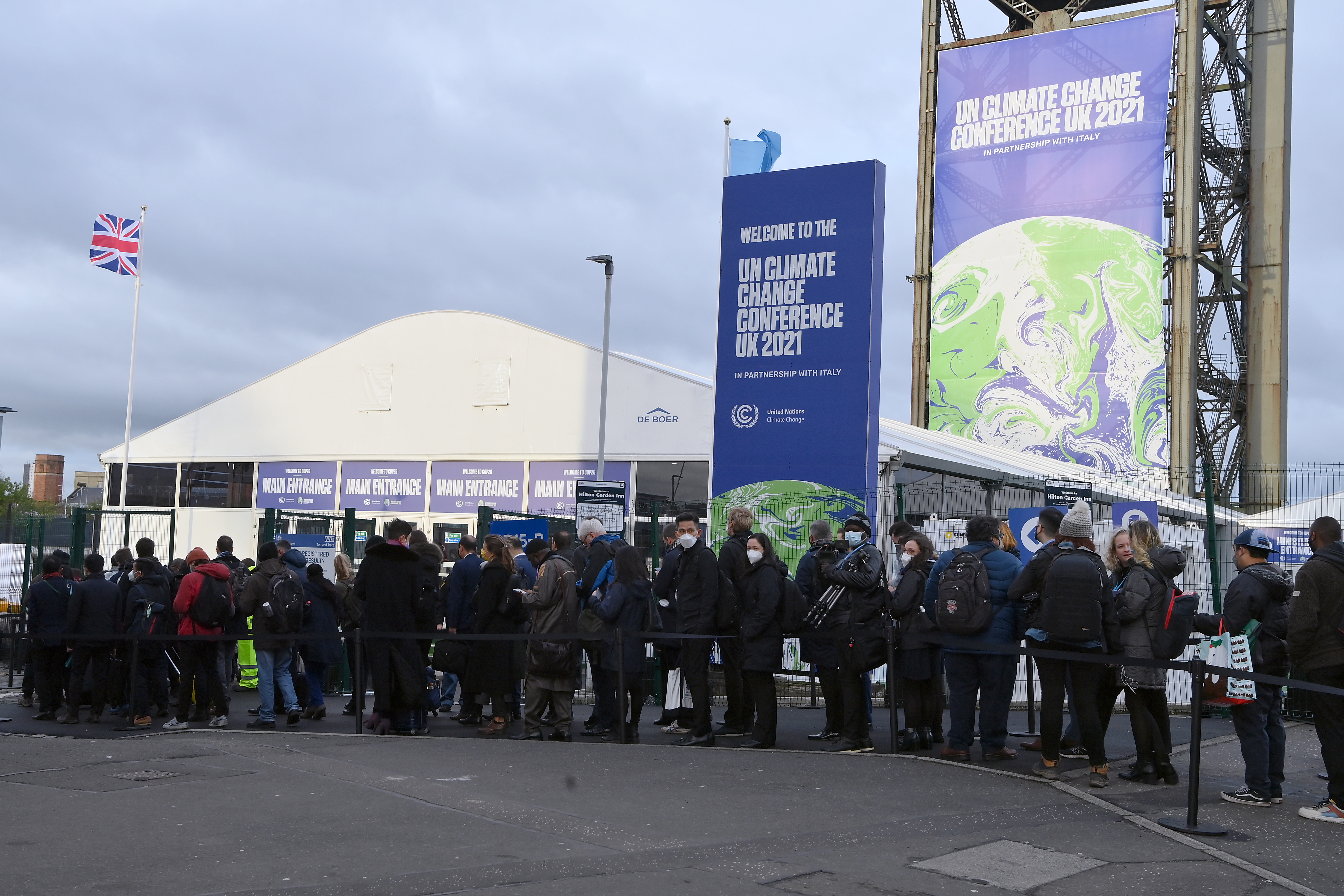The international climate conference that is now coming to an end in Glasgow, Scotland managed to lead to a number of significant statements by world leaders, in which a commitment of more than100 countries stop deforestation and reduce methane gas emissions by 30 percent by 2030. Already in preparation for the conference, many countries have committed to net-zero goals Greenhouse gas emissions until 2050 and 2060, in which the European Union, the United States, China, Russia - andIsrael. The big question, which you (and the rest of the world's inhabitants) may be asking yourself is - is it enough?
We turned to two of Israel's greatest experts on the subject of the climate crisis to understand whether the goals that world leaders have committed to are satisfactory, what needs to be done in order for them to be achieved, how we can finance the steps needed for this - and whether we are on the right path.
As in the grandmother operation
The purpose of the conference in Glasgow, which is a direct continuation ofThe climate conference convened in Paris In 2015, it is to bring about a situation where the increase in average global temperatures will be limited to less than 2 degrees Celsius (while aiming not to cross the threshold of 1.5 degrees Celsius) compared to the situation that existed before the industrial age. All the declarations and commitments from Glasgow are part of the efforts to reach this goal, due to its great importance: beyond the warming itself, all rise in temperatures, which is caused by an increase in the concentration of greenhouse gases in the atmosphere, is expected to worsen and increase the frequency of extreme weather events, such as heat waves, floods, droughts and fires, and raise the sea level around the world - thereby causing frequent natural disasters and an unprecedented amount of refugees to be displaced from their homes.

"The goal of net-zero emissions in 2050 (that is, a situation in which only a few greenhouse gases are emitted, and the amount that is emitted is absorbed by the natural systems of the earth and by means of absorbing carbon from the atmosphere - Y.S.) is perfectly fine, but the rate at which Reaching it is critical," explains Prof. Yoav Yair, Dean of the School of Sustainability at Reichman University. "As they said in 'Operation Grandma', we need to start as soon as possible and increase gradually, with ambitious goals of transitioning to renewable energies in the coming years - because if the reduction only happens in thirty years, it will be too late." According to him, one of the key elements that is still missing in the commitments heard before Glasgow is detailing the timetables for achieving the goals. "There is a difference between saying and doing. Therefore, milestones for 2025 and 2030 should be set, and it should be clear how exactly to measure reaching them."
"The declarations of zero carbon emissions by 2050 are not enough, because we also need a road map that describes how to get there," says Prof. Colin Price, head of the Department of Environmental Studies at Tel Aviv University. According to him, the way to make the goals come true is to show the world leaders that they are also financially profitable. "In the end, there will be no sanctions on the various countries - there is no mechanism capable of punishing them if they do not meet the goals they have committed to. Therefore, it is necessary to show that there is a win-win situation here, a situation where everyone benefits - and to show that in the long term, renewable energies provide, in addition to the clean air and the reduction in mortality, also economic profit".
Let the polluter pay
Even if in the long term the effort to reduce emissions constitutes An opportunity for economic development, in the short term it is necessary to invest many resources for this purpose, to finance technological developments, professional trainings and the establishment of new infrastructures. How should the necessary initial investments be financed?
One way that is sometimes taken for this is the imposition of taxes, such as the tax recently imposed on single-use plastic products. "I don't think it's necessary to do this, because that's how you pay very high taxes in Israel," says Yair. "I would like to see the big oil, gas and coal companies start paying compensation for the damage they have caused to our climate - something they have been doing knowingly since the 70s. Just as the tobacco companies retroactively paid compensation for the damages they caused, so too the most polluting companies have to pay - and not us, the simple people who suffer for not doing injustice to us."

Price also does not believe that the way to reduce emissions lies in taxation, or banning the consumption of harmful services or products. "If people are told not to do something, like not to drive a car or not to eat meat, they become anti", he says. "People want their hamburger and they want to fly to Europe and hang out, and they should be allowed to maintain their standard of living, by offering alternatives that do not cause harm. It is possible to provide all of Israel's energy from the sun, to produce fuel for airplanes from hydrogen or biofuel, cars can be electric and a steak can also be printed in a laboratory." According to him, this is how a great change can take place - without us realizing a real change in our daily lives.
At the same time, it is of course important to note that the actions of each and every one of us can have a significant impact. Among other things, Price explains that there is room for changes in some of the wasteful consumption habits that are common today - such as ordering cheap products over the Internet that are not really needed.
The train has already left the station
"Getting to net-zero emissions in 2050 is a huge challenge, but we are headed in the right direction," says Price. He compares the effort to mitigate the climate crisis to the successful attempt to address the ozone hole problem with Montreal Protocol, which was adopted by all UN countries in 1987, and which limited the use of over 100 ozone-depleting substances. "Even then, as in Glasgow, scientists presented the problem together with predictions about the future, and as a result international agreements were signed - which succeeded in reversing the damage to the ozone layer decades back. The train has already left the station: the age of oil is over, and there is no doubt that we can meet the goals we have set - but we need to start acting now", he concludes.
